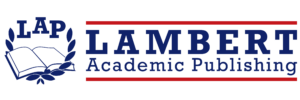
In a world where knowledge knows no boundaries, language barriers have long posed a challenge to academic publishing. According to a 2018 study by the European Commission, over 80% of all scientific papers are published in English, yet this language is the native tongue of only about 5% of the world’s population. This startling fact underscores the urgent need for multilingual assistance in academic publishing as a transformative solution. It’s more than just translation; it’s about building cultural bridges to connect the diverse tapestry of our global audience. In this article, we’ll explore how to tackle this issue head-on, emphasizing the importance of language as a cultural bridge to ensure that knowledge reaches every corner of the globe.
The Multilingual Challenge: A Barrier to Global Knowledge
Academic research is the cornerstone of progress. However, the predominance of English in academic publishing has limited the accessibility of knowledge. Non-native English speakers often face obstacles in accessing and understanding the latest research findings. This linguistic divide threatens to isolate cultures and limit the exchange of ideas.
Multilingual assistance serves as the much-needed bridge that overcomes this linguistic barrier. It’s a comprehensive solution that ensures knowledge remains an inclusive realm:
1 .Cultural Bridging Through Translation
Multilingual assistance begins with translation, but it’s not just about converting words from one language to another. It’s about cultural bridging. Expert translators delve deep into the essence of your research, preserving its significance and meaning in multiple languages.
2. Breaking Down Barriers Through Cultural Adaptation
Cultural adaptation goes beyond translation, seeking to ensure your research remains contextually relevant and meaningful across diverse linguistic backgrounds. It’s about being culturally sensitive, recognizing the nuances that make knowledge accessible to a broader spectrum of readers.
3. Expanding Horizons Through Collaboration
Multilingual publishing doesn’t just extend your readership; it expands your global network. Collaborating with researchers and academics from various linguistic backgrounds enriches your research by bringing together different perspectives. It fosters international collaboration, ensuring academic work is culturally informed.
The Multilingual Revolution
Multilingual publishing democratizes knowledge, transcending the linguistic divide. It allows non-native English speakers to access and engage with research that would otherwise be out of reach. This expansion of accessibility means that knowledge is no longer a privilege reserved for a select few.
Lambert Academic Publishing stands at the forefront of the multilingual assistance in academic publishing. We understand that language is more than a communication tool; it’s a cultural bridge. Our services are designed to help you unlock the full potential of multilingual publishing:
Our team of expert translators specializes in multiple languages, ensuring the precision and cultural relevance of your work.
Lambert Academic Publishing has established a vast global distribution network, enabling your multilingual publications to reach an extensive international audience.
In the evolving landscape of academic publishing, language should never stand as an obstacle to the exchange of knowledge. Lambert Academic Publishing is committed to tearing down linguistic barriers, embracing cultural diversity, and supporting the globalization of scholarship.
Together, we can unlock the full global potential of scholarly research and transform the way knowledge is shared, transcending the confines of language and culture. See how!
Explore our extensive online library at morebooks.shop, offering a rich collection of books in over 8 languages.
